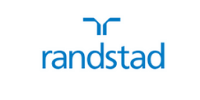
Confidence is quiet. Doubt is loud.
Go Beyond Imposter Syndrome — Step Into Your True Power
Even the most accomplished leaders can silently struggle with self-doubt. I work with executives, founders, and ambitious professionals who feel like they’re “faking it”—despite the evidence of their success. Through focused coaching, we unpack the roots of imposter syndrome, build authentic confidence, and help you own your place at the table without second-guessing every move.
Not a fraud. Just fabulously unsure
Why You Might Be Undervaluing Yourself
Have you ever hesitated to take on new opportunities or challenges because you’re afraid you won’t succeed?
Do you frequently compare yourself to others and feel inadequate when you perceive them as more successful or talented?
Do you overwork or self-sabotage to cover the feelings of inadequacy?
You're aware that you're not charging enough, but the thought of increasing your fees worries you—concerned that clients might not be willing to pay more...
Ask yourself
If you answered YES, you are experiencing Imposter Syndrome.
Imposter Syndrome is a behavioural health phenomenon described as self-doubt of intellect, skills, or accomplishments among high-achieving individuals.
When someone has impostor syndrome, they experience repeated feelings or thoughts that they are incompetent or not good enough, despite evidence to the contrary.
What is Imposter Syndrome?
What factors contribute to IS:
Personality Traits: Perfectionism
Workplace Environment
Educational Background
Family Expectations
Social Stereotypes
Early Successes
Liberate yourself from the grip of imposter syndrome.
Our Coaching Services
Executive Coaching
Executive coaching enhances strategic thinking, leadership presence, and effective decision-making. It supports senior leaders in navigating complex challenges with confidence and clarity.
Strengths Coaching
Strengths coaching empowers individuals to discover and leverage their natural talents, driving engagement, fulfillment, and exceptional performance.
Systemic Team Coaching
True growth is cultural and systemic, not just individual. My team coaching programs help leadership teams build trust, align purpose, and lead better together, driving lasting clarity, connection, and capability across the business.
360 Debrief
Debrief sessions provide actionable insights from assessments to fuel targeted development. They enhance self-awareness and inform personalized growth strategies.
Imposter Syndrome Programme
This programme empowers professionals to overcome self-doubt and build authentic confidence. It cultivates inner resilience and a stronger leadership presence.
High Potential Coaching
High potential coaching accelerates the growth of emerging leaders by honing key capabilities. It fosters readiness for greater responsibility and sustained performance.
Onboarding Coaching
Onboarding coaching supports new leaders in navigating their roles with confidence and speed. It enables early impact through strategic alignment and relationship building.
Succession Planning Coaching
Succession planning coaching prepares high-potential talent for future leadership roles. It ensures smooth transitions and strengthens organizational continuity through focused development.
Transition Coaching
Transition coaching guides leaders through critical career or role changes. It builds clarity, resilience, and adaptability during periods of transformation.
Welcome to the club. We’re all winging it
Overcoming Imposter Syndrome: A 6-Week Coaching Program to Reclaim Your Confidence
Do you ever feel like you're just "winging it" while others seem to have it all figured out? You’re not alone. Imposter syndrome affects high achievers across industries—leading to self-doubt, overwork, and missed opportunities. That’s why we created a focused 6-week coaching program designed to help you understand and overcome imposter feelings, so you can step into your full potential.
The journey begins with a personal diagnostic and the CliftonStrengths® assessment to uncover your unique talents. We then explore the roots and triggers of imposter syndrome and introduce proven strategies to reframe limiting beliefs, build confidence, and strengthen your professional identity. Through personalized coaching, action planning, and tools grounded in psychology, you’ll learn to stop second-guessing and start owning your success.
Whether you're navigating a new role or aiming for the next level, this program offers the space, structure, and support to shift from self-doubt to self-belief.
Ready to start showing up as the leader you truly are? Let’s begin.
Success feels strange when you’re not used to it
My Imposter Syndrome Journey
I want to share my Imposter Syndrome story to show it’s a common struggle—and hopefully bring comfort and reduce the stigma around expressing vulnerabilities.
Growing up as the only daughter in a budget-conscious home in Chatham, Kent, I was the peacemaker, always trying to keep everyone happy. I wasn’t top of my class, so I had to work twice as hard at university and in my career. My parents didn’t expect me to go to university—they pictured me becoming a secretary like my mum.
The real test came when I moved into recruitment and relocated from London to Singapore. I worked weekends and late nights just to prove I belonged. Even as MD at Robert Walters Singapore, I sat in meetings with top execs feeling like a fraud—one wrong answer away from being exposed.
It was through studying and coaching others with Imposter Syndrome that I began to identify my own triggers and silence those negative thoughts. I learned to focus on my achievements and accept that not knowing everything is okay—especially in coaching, where the client is often the expert.
I share this in hopes it resonates with someone out there. You're not alone—we're all learning and growing, step by step.
You are not your thoughts. You are the observer of your thoughts.
Methodology on Imposter Syndrome.
The program blends personalized coaching, psychological frameworks, and strength-based development. It begins with diagnostics and the CliftonStrengths® assessment, followed by structured weekly sessions addressing imposter triggers, cognitive reframing, and confidence-building. Practical tools, reflection exercises, and action planning ensure sustainable mindset shifts and measurable progress toward personal and professional goals.
Real Conversations. Real Change.
The Psychology Behind Imposter Syndrome
Yes we’re still talking about Imposter Syndrome. Ever feel like you’re just faking it and everyone’s going to find out? You're not the only one—a lot of us are in the same boat.
We want to debunk some myths surrounding IS so we can all start shaking off those fraudy feelings.
Imposter syndrome is not real ·
Imposter syndrome only affects women
Imposter syndrome is a mental health condition
It will never go away
It’s a good thing to have for motivation and success
The most confident people don’t experience it
You don’t have to be plaqued by fears and insecurities.
We often believe our thoughts without even questioning them.… Having a thought doesn’t make it true.




























































